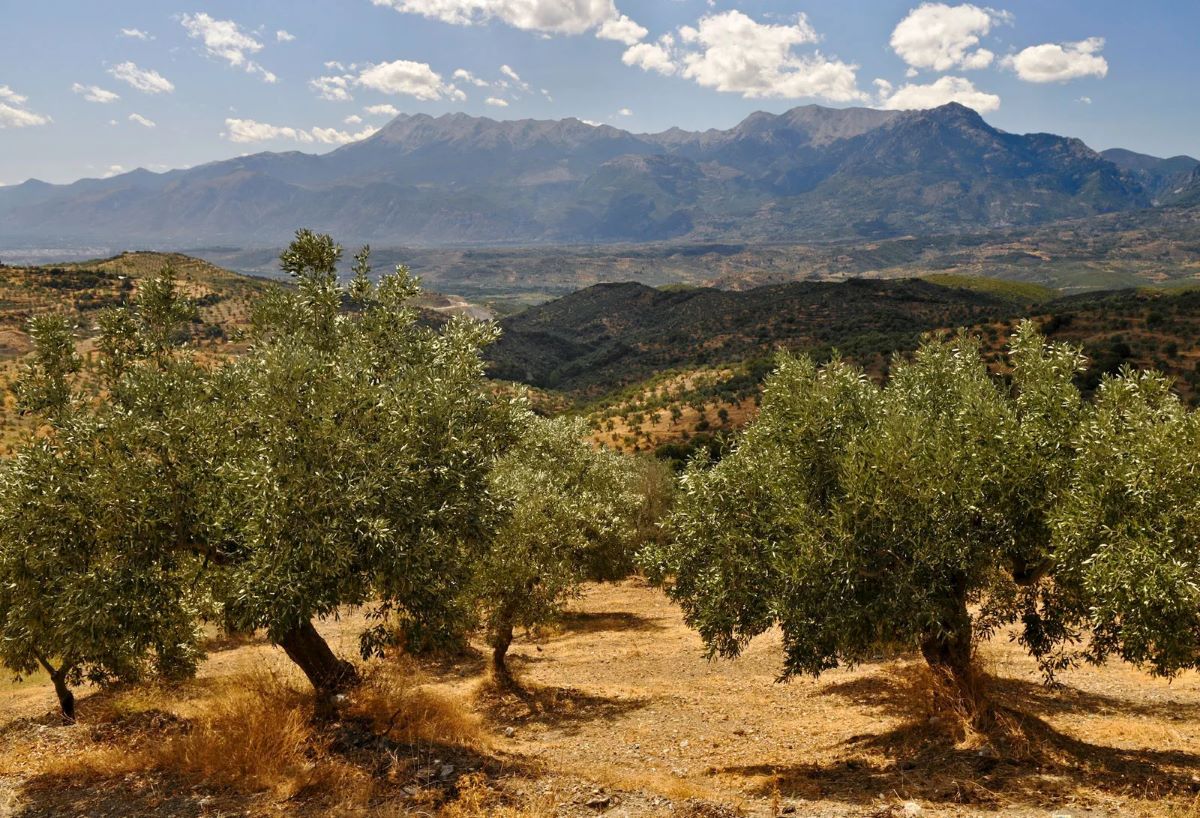
Olive trees have long been revered for their significance in various cultures, symbolizing peace, wisdom, and prosperity. These ancient trees, with their gnarled trunks and silvery-green leaves, hold a rich history and offer an abundance of benefits. From producing the beloved olive fruit to providing nourishing olive oil, these trees play a vital role in both culinary traditions and the natural environment.
In this article, we'll delve into the fascinating world of olive trees, uncovering 10 intriguing facts that shed light on their cultural, historical, and botanical importance. Whether you're a nature enthusiast, a culinary aficionado, or simply intrigued by the wonders of the natural world, these insights will deepen your appreciation for the remarkable olive tree. Join us as we explore the captivating allure and enduring legacy of these timeless trees.
Key Takeaways:
- Olive trees, cultivated for over 6,000 years, are symbols of endurance and resilience, with their longevity and cultural significance making them a timeless inspiration for art and literature.
- Thriving in the Mediterranean climate, olive trees are sustainable, supporting biodiversity and providing highly prized fruits with culinary and symbolic value.
Olive trees have been cultivated for over 6,000 years.
Olive trees, scientifically known as Olea europaea, have a rich history dating back thousands of years. The cultivation of olive trees can be traced to ancient civilizations such as the Greeks, Romans, and Egyptians, who valued the tree for its versatile uses.
Olive trees are known for their longevity.
These remarkable trees can live for centuries, with some specimens believed to be over 2,000 years old. Their longevity symbolizes endurance and resilience, making them an enduring symbol in various cultures and religions.
Olive trees produce a highly prized fruit.
The olive fruit is not only a culinary staple but also a symbol of peace and prosperity. The fruits are harvested for their oil, which is renowned for its health benefits and culinary versatility.
Olive trees thrive in Mediterranean climates.
These trees flourish in regions with hot, dry summers and mild, wet winters, making the Mediterranean climate ideal for their growth. They are a defining feature of the Mediterranean landscape, contributing to its unique beauty and biodiversity.
Olive trees have cultural and religious significance.
Throughout history, olive trees have been revered for their cultural and religious symbolism. They are mentioned in ancient texts and are associated with peace, wisdom, and abundance in various traditions.
Olive trees are a sustainable crop.
The cultivation of olive trees supports sustainable agricultural practices, as they are well-adapted to arid environments and require minimal water compared to other fruit-bearing trees.
Olive trees can withstand harsh environmental conditions.
Their ability to thrive in challenging environments, such as rocky, arid terrain, showcases their resilience and adaptability.
Olive trees have a distinctive appearance.
With their gnarled trunks and silvery-green leaves, olive trees possess a unique and picturesque aesthetic that adds character to the landscapes where they grow.
Olive trees play a vital role in biodiversity.
They provide a habitat for diverse flora and fauna, contributing to the overall ecological balance in their native regions.
Olive trees are a source of inspiration for artists and writers.
Their timeless beauty and cultural significance have inspired countless works of art, literature, and poetry throughout history.
The olive tree (Olea europaea) is an ancient and revered plant that has played a significant role in human civilization for millennia. Cultivated for over 6,000 years, these remarkable trees are known for their longevity and are deeply intertwined with the cultural and religious heritage of the Mediterranean region. The highly prized fruit of the olive tree holds immense culinary and symbolic value, with its oil being celebrated for its health benefits and versatile uses. Thriving in the Mediterranean climate, olive trees are resilient and sustainable, requiring minimal water and supporting biodiversity. Their distinctive appearance and cultural significance have made them a subject of inspiration for artists and writers, further solidifying their timeless appeal. As enduring symbols of endurance, peace, and prosperity, olive trees continue to captivate and inspire people around the world.
Conclusion
Olive trees have captivated human civilization for millennia, offering not only their precious fruits but also a rich tapestry of cultural, historical, and ecological significance. From their resilient nature to the versatile uses of their products, olive trees continue to inspire and enrich our lives. With their enduring symbolism and remarkable adaptability, these trees stand as a testament to the enduring connection between humanity and the natural world. Embracing the legacy of olive trees means embracing a heritage that transcends generations and embodies the timeless beauty of nature.
FAQs
What are the main uses of olives and olive oil?
Olives and olive oil are widely used in culinary applications, from salad dressings and marinades to cooking and baking. Additionally, olive oil is valued for its health benefits and is used in skincare products and traditional remedies.
How long does it take for an olive tree to bear fruit?
Olive trees typically start producing fruit after about three to five years, with full production achieved at around 8-12 years of age. However, this timeline can vary depending on the tree's variety and growing conditions.
Was this page helpful?
Our commitment to delivering trustworthy and engaging content is at the heart of what we do. Each fact on our site is contributed by real users like you, bringing a wealth of diverse insights and information. To ensure the highest standards of accuracy and reliability, our dedicated editors meticulously review each submission. This process guarantees that the facts we share are not only fascinating but also credible. Trust in our commitment to quality and authenticity as you explore and learn with us.
